 What do Heath Ledger, Anna Nicole Smith, and Chris Farley have in common? They were celebrities whose lives suddenly ended from drug overdose. Sadly, all three tragedies were directly linked to abuse of prescription medications. While the abuse of many illicit schedule controlled substances has steadily declined in the general population, the misuse of opioids (substances found in almost every prescription pain reliever) has increased drastically. According to the United Nations Office on Drugs and Crime (UNODC), it is estimated that between 26.4 million and 36 million people abuse opioids worldwide.[1] What’s more, the Substance Abuse and Mental Health Services Administration (SAMHSA) estimated that 2.1 million people in the United States suffered from substance use disorders related to prescription opioid pain relievers in 2012, while an estimated 467,000 were addicted to heroin.[2]
What do Heath Ledger, Anna Nicole Smith, and Chris Farley have in common? They were celebrities whose lives suddenly ended from drug overdose. Sadly, all three tragedies were directly linked to abuse of prescription medications. While the abuse of many illicit schedule controlled substances has steadily declined in the general population, the misuse of opioids (substances found in almost every prescription pain reliever) has increased drastically. According to the United Nations Office on Drugs and Crime (UNODC), it is estimated that between 26.4 million and 36 million people abuse opioids worldwide.[1] What’s more, the Substance Abuse and Mental Health Services Administration (SAMHSA) estimated that 2.1 million people in the United States suffered from substance use disorders related to prescription opioid pain relievers in 2012, while an estimated 467,000 were addicted to heroin.[2]
According to the American Society of Addiction Medicine (ASAM), opioid addiction is driving the overdose epidemic, with more than 20,000 overdose deaths in the U.S. in 2015. Fortunately, there are ways to prevent opioid-related fatalities. Knowing how to safely use, store, and dispose of medications can help put a halt to this epidemic. Individuals will have a greater awareness of the negative outcomes, thus helping to reduce the risk of accidental overdose.
Safe Usage
Opioids, which send pain-blocking signals to the brain, are found in prescription pain relievers such as hydrocodone, codeine, and morphine. For chronic pain sufferers and cancer patients, these medications are highly beneficial as they play a key role in treating long-lasting pain. However, when not used as prescribed, abusing opioids can negatively impact your health.
Unbeknownst to many, everyday pain relievers such as Tylenol and Advil can cause severe damage to vital organs or even fatality, if used incorrectly. Whether it be a pain medication containing opioids prescribed by a doctor, or an over-the-counter substance, one should adhere to label instructions or doctor’s orders to prevent abuse and make consumption as safe as possible. Ultimately, pain relievers can be very helpful, but the slightest abuse of a medication can be life-threatening.
If you’re unsure about a medication, contact your doctor or pharmacist before use. Here are a few ways to safely use medications:
- Always ask about side effects and how you might react if you are taking other medications or vitamins.
- Be certain you understand how and when to take the medication.
- Make sure you know the prescribed duration of treatment and ask if you should finish the prescription even if you aren’t experiencing pain.
- Schedule an appointment with your doctor for a review of your medications. Put everything (including vitamins and over-the-counter medications) into a secure bag and bring it with you to your appointment. The doctor should inform you of any medications that could cause a negative reaction when taken together.
Proper Storage
Not only is proper storage vital to safety, but where you store your medicine can also affect how well it works. Always keep medications out of reach from children and in a locked cabinet. Improper storage can lead to misuse/abuse by another individual, deteriorate the drug’s effectiveness, or even cause you harm. Heat, light, air, and moisture can alter medication, making it less potent or causing it to expire before the expiration date. It is important to keep medicine in its original container. When in doubt, ask your pharmacist for specific storage instructions.
When it’s time to dispose of your medications:
- Transfer unused medicines to authorized collectors. You can find a DEA-authorized collector in your area.
- You can discard most medicines in the household trash by following these steps:
- Mix medicines (uncrushed) in dirt, used coffee grounds, or cat litter.
- Place mixture in sealed plastic bag.
- Throw bag in household trash and be sure to scratch out all personal information from prescription bottles or packaging.
Signs and Symptoms of Abuse
The signs and symptoms of opioid abuse can depend on many factors and may include the following:
Behavioral symptoms:
- Withdrawal from family and friends
- Expressions of unprovoked anger
- Dramatic changes in clothing, weight, and personal hygiene
- Inability to plan or follow through with plans
- Obsession with acquiring and using drugs
- Lying about whereabouts
Physical symptoms:
- Impaired motor coordination
- Shallow breathing and slowed heart rate
- Dilated pupils
Cognitive symptoms:
- Memory problems
- Excessive sleepiness
Knowledge Is Power
The best way to prevent opioid overdose is to improve prescribing, reduce exposure, and stop abuse. With a combined use of counseling and behavioral therapies, the Addiction Recovery Program and Pain Recovery Program at Sierra Tucson offer comprehensive residential treatment for those struggling with opioid addiction. A multidisciplinary team of professionals provides an individualized plan to meet the specific needs of each resident. If you or your loved one is abusing prescribed pain medications and/or opiates, please contact our Admissions Coordinators at (855) 578-0241. We can help.
References
[1] UNODC, World Drug Report 2012. https://www.unodc.org/unodc/en/data-and-analysis/WDR-2012.html
[2] Substance Abuse and Mental Health Services Administration, Results from the 2012 National Survey on Drug Use and Health: Summary of National Findings, NSDUH Series H-46, HHS Publication No. (SMA) 13-4795. Rockville, MD: Substance Abuse and Mental Health Services Administration, 2013.













